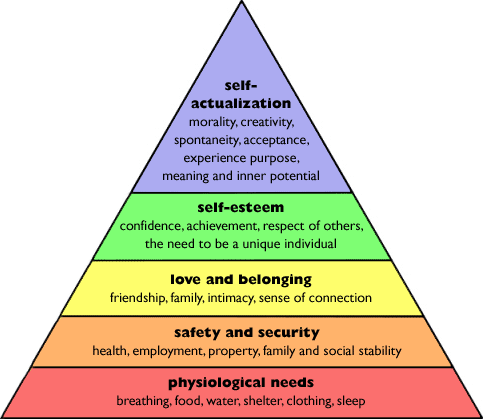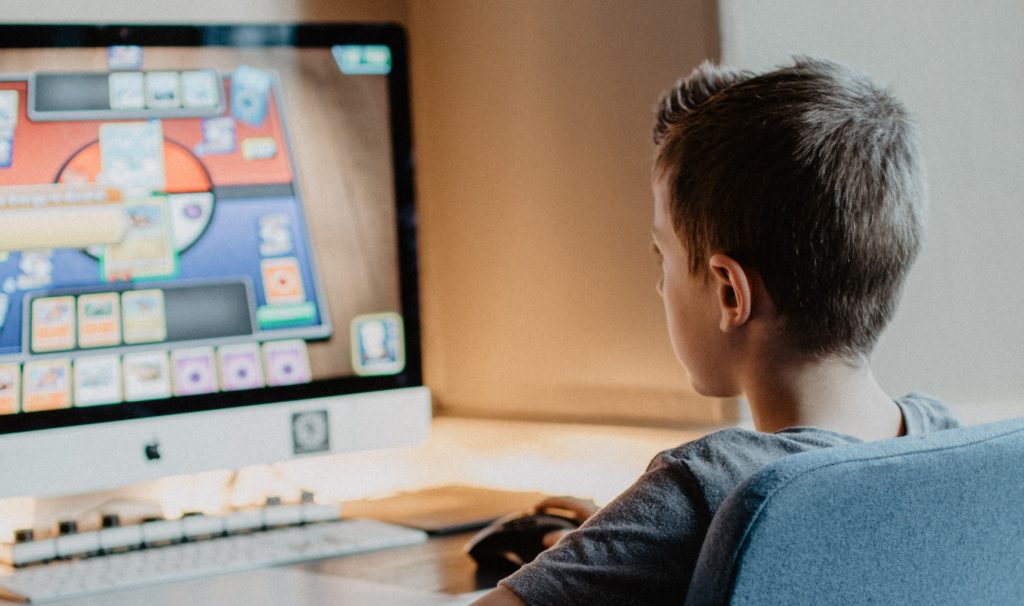Everyone already knows the importance of wellbeing, but in a time of recovery from a pandemic and with school administrators seeming to require more and more of teachers, many are reaching a breaking point. When students are getting overwhelmed teachers seem to have an unending toolkit to help, but teachers now often find themselves with additional responsibilities, more limited resources, and struggle to utilize many of the same strategies in their own lives as the pressure rises. As teacher burnout reaches an all time high, school administrators need to find ways to do more to support struggling staff.

In a time of challenge, especially with so many teachers and students having to handle new responsibilities, technologies, and an environment of unstable change, it is helpful to return to the basics and remember Maslow’s Hierarchy of Needs. According to this psychological model, the human brain can not properly devote attention and resources to abstract concepts like learning, morality, and creativity if more fundamental needs below it are met such as social support, a safe environment, and basic needs like food, water, and sleep.
There are many layers of different types of things a human mind needs to feel fulfilled, but if the things on the previous layer are not fulfilled, the person will be unable to reach their potential in the higher order tasks as the brain will not be able to confidently allocate mental resources there. For example, if a person does not have a strong self esteem, they won’t be able to be creative and learn. However, if a person does not feel loved and supported by their social network, they won’t be able to develop that strong self esteem. In order to be able to feel loved and supported socially however, they need to feel safe in their environment physically and mentally and be in good health.
Finally, as the baseline, before anything else can be achieved, a person needs good food, clean water, and regular quality sleep. Teachers spend a great amount of energy considering students’ ability to self actualize their potential, and they often consider students’ self esteem, but often the lower layers are left for parents to deal with. Recent research highlights how important it is for students to have a regular sleep schedule.
While teachers may feel they have no control over a students sleep habits, there may be more they can do than they realize. Additionally, as teacher burnout reaches all time highs, some teachers might need to look at their own hierarchy of needs and consider refocusing from the ground up. Fighting teacher burnout requires administration supporting teachers most fundamental needs so that they can handle the complex day to day of classroom management.

New Research
Researchers from Washington University in St. Louis, Mo. conducted a study on University students to measure the impact of their sleep schedule on their psychological wellbeing and academic performance. Unsurprisingly, a longer and more regular sleep schedule resulted in not only higher grades but also their subjective feelings of happiness and a reduced amount of anxiety. (Bono, and Hill)
This research is not necessarily groundbreaking, but serves as an important piece of science in proving the repeatability of findings and helps to uncover areas of differences. For example, not all studies have found that students’ subjective feelings always match the improvements from an improved sleep schedule, but research consistently shows that improved sleep habits lead to cognitive benefits. (Sousa et al.)
How Schools Can Fight Teacher Burnout
While some may question the value in being taught something they already know, oftentimes going over the basics again helps to fix up bad habits and shore up a solid foundation to build on again. While teachers may not be able to control their students’ sleep habits directly, research actually shows that educational interventions on sleep health awareness do actually lead to improvements in student sleep habits. (Brown et al.)
Oftentimes, interventions targeting students’ knowledge of basic skills like nutrition and sleep habits are dismissed as a waste of time as most students are well aware of the best practices, but yet still struggle to improve their habits. There are still things teachers and schools at large can do to target these baselines and support the wellbeing of the entire school.
This research should encourage teachers that even though these seminars tend to be simply repeating information already known, reviewing is still a beneficial practice. It also may be a truly crucial part of the education of some children who, for some reason or another, actually didn’t know the information due to home situation or other background factors. While schools can’t have full responsibility for a student’s well being 24/7, targeting these fundamental human needs produces measurable improvements in student behaviors and improves the students mental health.
In addition to teachers giving lessons on these baselines, administrators need to ensure they are doing what they can to support students and teachers keeping Maslow’s Hierarchy of Needs in mind. Providing healthy food at school, ensuring a safe learning environment, and making sure students and teachers feel socially supported are all more fundamental than any curriculum reviews or new technologies. Especially in a year of recovery from a pandemic, school budgets should be focused on mitigating damage from teacher burnout, not reinventing the wheel by introducing new technologies or expensive education consultants.
While nutrition and sleep are the fundamentals for the human body, for a school, the teachers are the most fundamental layer. While the focus of a school is to help students learn and grow, the best and most efficient way of doing that is by supporting the teachers in each classroom. Focusing on that one individual and supporting them will translate into them being better able to support their classes and support all of the 20-30 students they care for.
Administrators should focus on teachers so that teachers can focus on students. When a student struggles, there are things that need to be done to support them and get them back on track, but oftentimes their struggles, unless behavioral, don’t impact the learning of others. When a teacher’s mental health starts to fade and they aren’t able to give their best to the class, everyone struggles to learn. Teachers too need to not feel guilty about taking time to focus on their own needs, set clear boundaries, and take care of themselves so that they can adequately support their students. Fighting teacher burnout means first and foremost supporting the basics before expecting the exceptional.
Want more like this? Make Lab to Class a part of your weekly professional development schedule by subscribing to updates below.
References
Bono, Timothy J., and Patrick L. Hill. “Sleep Quantity And Variability During The First Semester At University: Implications For Well-Being And Academic Performance”. Psychology, Health & Medicine, 2021, pp. 1-6. Informa UK Limited, https://doi.org/10.1080/13548506.2021.1971724.
Brown, Franklin C. et al. “Relationship Of Sleep Hygiene Awareness, Sleep Hygiene Practices, And Sleep Quality In University Students”. Behavioral Medicine, vol 28, no. 1, 2002, pp. 33-38. Informa UK Limited, https://doi.org/10.1080/08964280209596396.
Sousa, Ivanise Cortez et al. “Changes In Sleep Habits And Knowledge After An Educational Sleep Program In 12Th Grade Students”. Sleep And Biological Rhythms, vol 11, no. 3, 2013, pp. 144-153. Springer Science And Business Media LLC, https://doi.org/10.1111/sbr.12016.



